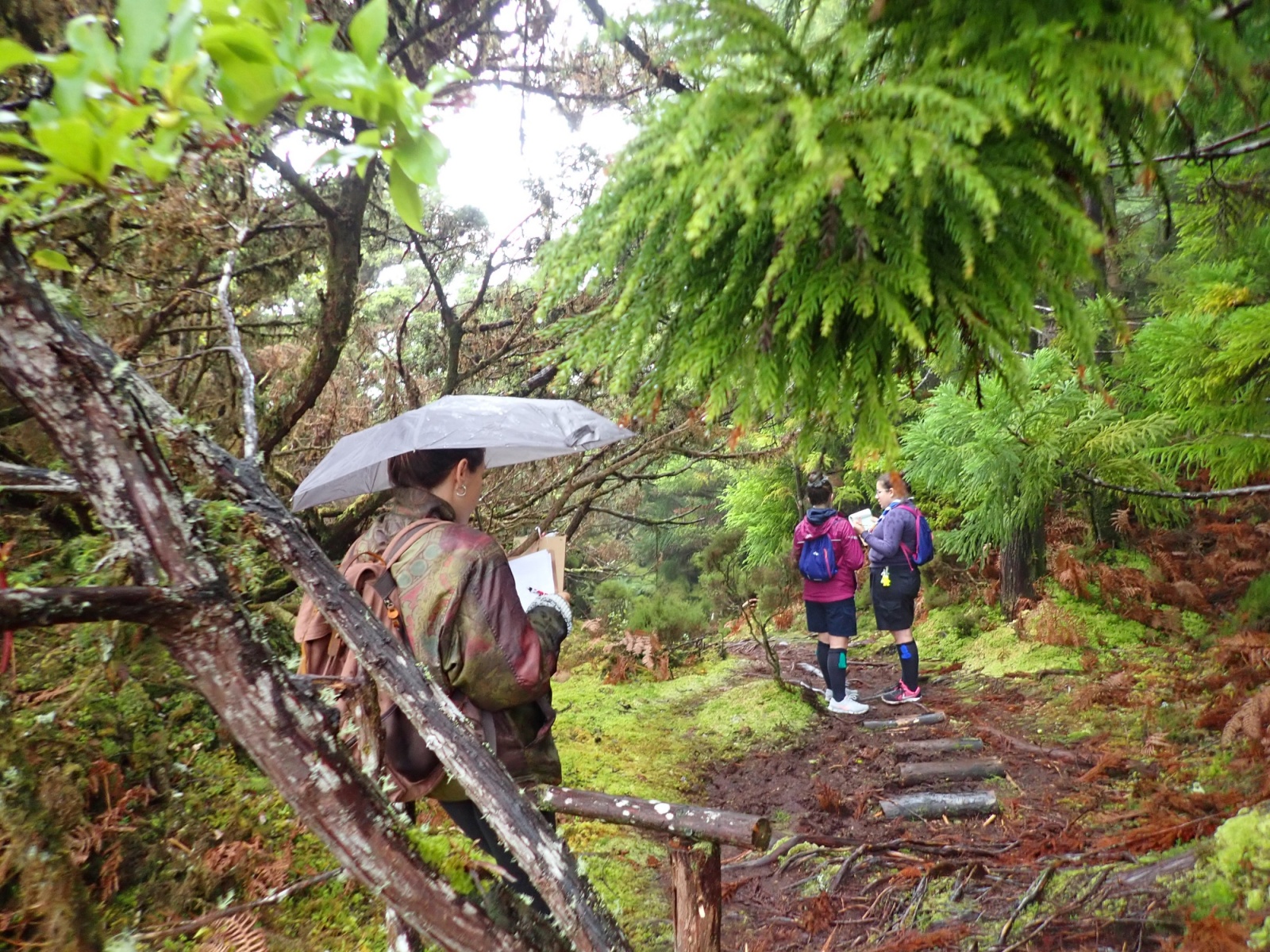List of publications under the project:
Silva, A. R., Gabriel, R., Amorim, I. R., Arroz, A. M. & Matos, S. (2022). À (re)descoberta da natureza: Guia de atividades pedagógicas. Angra do Heroísmo: Universidade dos Açores. [português; 57 pp.] ISBN: 978-989-8870-41-4
Gabriel, R. & Borges, P.A.V. (eds.) (2022). Guia prático da flora nativa dos Açores/ Field guide of the Azorean native flora. Instituto Açoriano de Cultura, Angra do Heroísmo. [edição bilingue; 520 pp.] ISBN:978-989-8225-74-0
Matos, S., Silva A. R., Sousa, D., Picanço, A., Amorim, I. R., Gabriel, R. & Arroz A. M. (2022). Cultural Probes for Environmental Education: Designing Learning Materials to Engage Children and Teenagers with Local Biodiversity. Plos-One. doi: https://doi.org/10.1371/journal.pone.0262853
Piasentin, Gabriel, R., Arroz, A. M., Silva, A. R., & Amorim, I. R. (2021). What Is Most Desirable for Nature? An Analysis of Azorean Pupils’ Biodiversity Perspectives When Deciding on Ecological Scenarios. Sustainability (Basel, Switzerland), 13 (22), 12554–. doi: https://doi.org/10.3390/su132212554
Sousa, D, Silva, A. R., Amorim, I. R., Ashby, S. , Arroz, A. M., Piasentin, F., Gabriel, R. and Matos, S. (2021) The Field Guide App: Connecting Island Communities to Local Conservation through Mobile Interaction. Supplementary Proceedings of the 10th International Conference on Communities & Technologies (C&T’21), Seattle, WA, 20-25 June. doi: https://dl.eusset.eu/handle/20.500.12015/4200
Picanço, A., Arroz, A., Amorim, I., Matos, S., & Gabriel, R. (2020) Teachers’ perspectives and practices on biodiversity web portals as an opportunity to reconnect education with nature. Environmental Conservation, 48(1), 25-32. doi: https://doi.org/10.1017/S0376892920000405
Picanço, A., Gabriel, R., Arroz, A.M., Amorim, I.R., Silva, A.R., Sousa, D. & Matos, S. (2020). Um guia digital para a Natureza: promover a floresta dos Açores com aprendizagem baseada no lugar. Uaciência, https://noticias.uac.pt/wp-content/uploads/2020/10/Revista-18_10_2020-paginada.pdf

